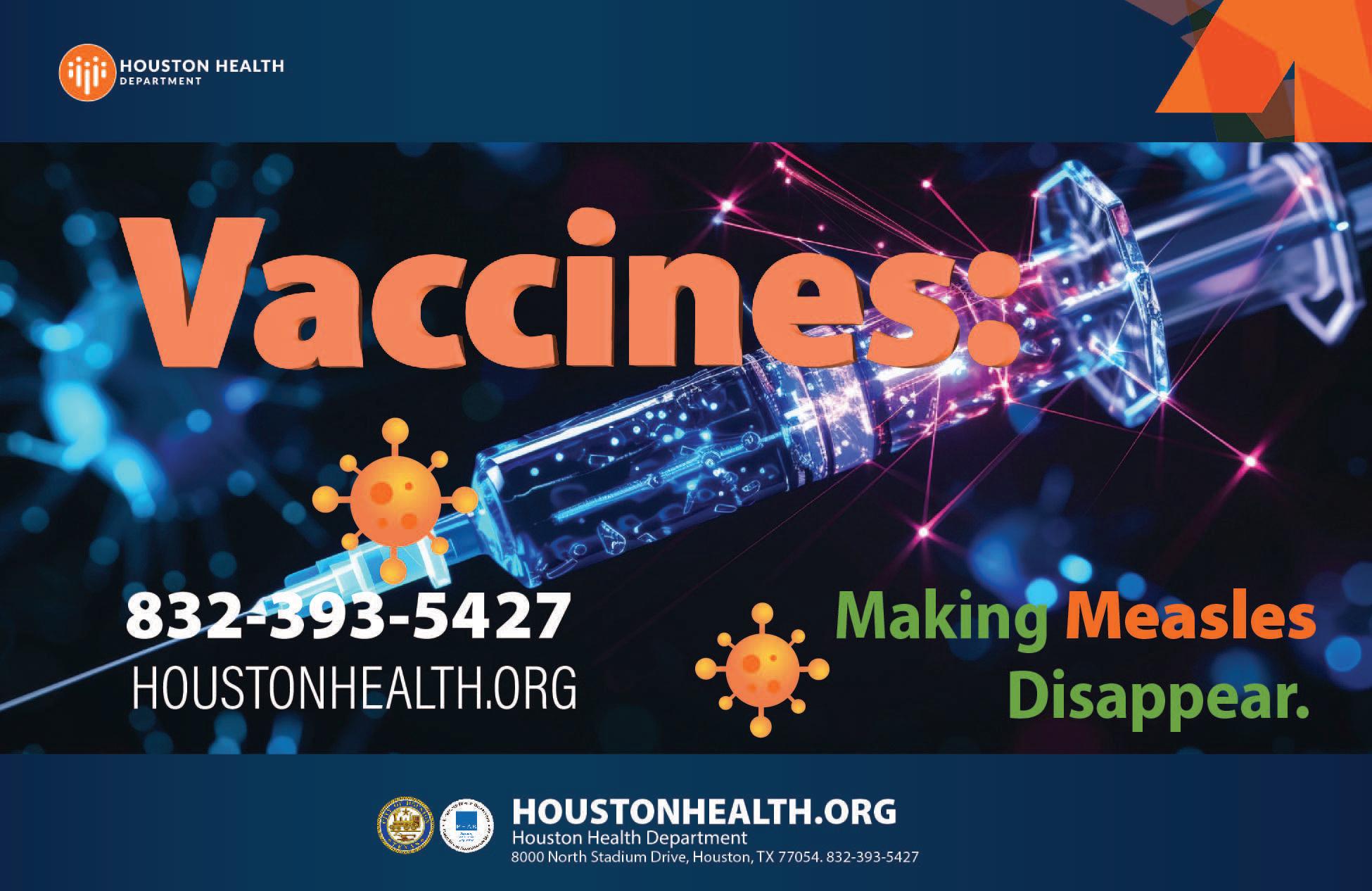



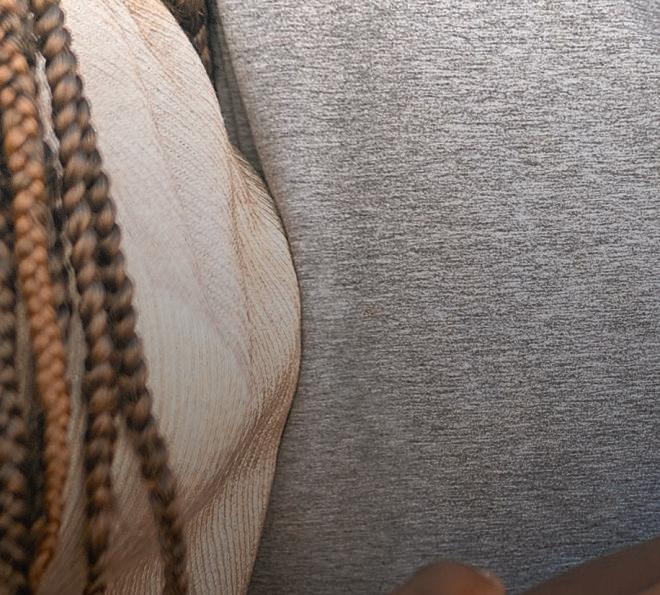


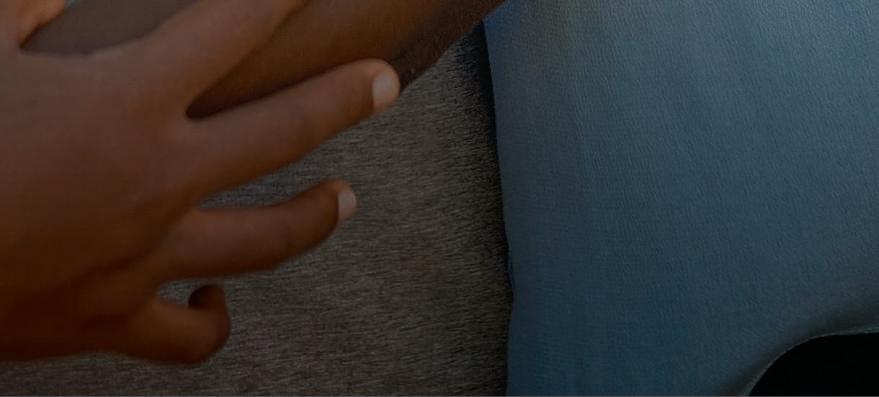















As the publisher of the Defender Newspaper for the past 25 years, I have always believed that our greatest asset is our staf. Te dedication, creativity, and relentless pursuit of truth that each team member brings to their work are what make this media company and publication a trusted source of information and a beacon of integrity. However, in recent times, I have noticed a growing trend that concerns me deeply: the silent struggle with mental health.
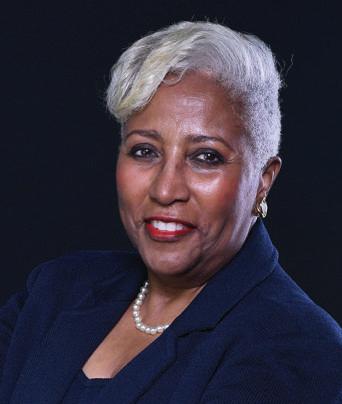
Journalism is a demanding profession. Te pressures of meeting deadlines, the emotional toll of covering distressing stories, and the constant drive for excellence can lead to signifcant stress. While we have always prioritized professional development and journalistic integrity, it’s time we also prioritize the well-being of our team. Tat is why I am giving our entire staf a weeklong mental health break.
In today’s fast-paced world, taking a break is ofen seen as a luxury, but it is, in fact, a necessity. Mental health is as important as physical health. Just as we would encourage someone to take time of to recover from a physical illness, we must also support taking time to recover from mental exhaustion. Stress, anxiety, and burnout are not just personal issues; they are workplace issues that afect performance, creativity, and overall job satisfaction. By taking this break, we are sending a clear message: We value you not just as employees but as individuals. Tis week is an opportunity to rest, recharge, and refect. It’s a time to engage in activities that bring joy, to spend time with loved ones, or simply to relax without the pressures of work.
While this is something we’ve decided to do, I’m hoping that other businesses will see the importance and follow suit. Research consistently shows that taking regular breaks leads to numerous benefts, including: Increased Productivity: Rested minds are more creative and efcient. Afer a break, employees ofen return with renewed energy and fresh perspectives, leading to higher
productivity.
Improved Mental Health: Taking time of helps reduce stress and anxiety. It allows individuals to decompress, which can prevent burnout and promote long-term mental well-being.
Enhanced Job Satisfaction: Employees who feel supported and valued are more satisfied with their jobs. This leads to greater loyalty, lower turnover rates, and a more positive work environment. Better Team Dynamics: When employees return from a break, they are ofen more collaborative and better able to work together. A refreshed team is a more cohesive team.
As leaders, it’s important that we set the tone for our organization. By prioritizing mental health, we are not only supporting our current staf but also setting a standard for future employees. We are creating a culture where mental health is openly discussed and valued, where taking time of is seen as a strength, not a weakness.
Tis weeklong break is just the beginning. Investing in mental health is not just the right thing to do; it’s the smart thing to do. A mentally healthy workforce is a more engaged, productive, and creative workforce. By taking this step, we are not only improving the lives of our employees but also enhancing the quality of our work. Let’s take this time to recharge, and return ready to continue our important work with renewed vigor and passion.
Tis entire issue is dedicated to mental health. Our outstanding team has compiled an array of stories that tackle mental health and profle those thought-leaders at the forefront of emotional wellness. And head over to DefenderNetwork.com. We’ve spent the week, highlighting stories about mental health. So we know there’s some news you can use. Tis entire edition is dedicated to helping you make your mental health a priority.
PS - Tank you ReShonda Tate for writing this message and giving birth to this special edition that is much needed.
By ReShonda Tate
For decades, Black women have celebrated our ability to “do it all.” Ten Karyn White’s 1980s hit “I’m Not Your Superwoman” challenged the celebrated notion of “resilience” in Black women. Te song underscores the heavy burdens societal expectations place on Black women, highlighting the detrimental efects on our emotional and psychological well-being. And Black women began singing it from the top of their lungs. And with good reason.
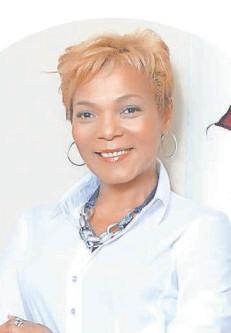
Society has long perpetuated the myth that Black women are incapable of feeling pain and should endure suffering with unyielding resilience. That mindset has placed Black women with a burden that is taking a toll on their mental health.
“Being that ‘strong Black woman’ is hurting us,” says Nettie Jones, who wrote Te Girlfriend’s Guide to Terapists. “We as Black women embody those stereotypes and we take them on a lot of the time. By saying things such as ‘I got things under control’ or ‘I can handle it,’ we have a hard time getting over what other people put on us and what other people think we should be.”
“Sometimes the feeling of being strong causes me to take on more than what my mental capacity can handle. Whether it is at home as a single mother or at work proving I can handle more. Sometimes I don’t immediately seek medical attention or I hold of on things that I need to do because I feel like I can do more and handle more.” -Latrice Causey, educator
Black women are ofen expected to manage their struggles and those of their families and communities, ofen without adequate support. Tis expectation of perpetual resilience leads to chronic stress, contributing to higher rates of mental health issues, such as depression, and health-related problems, including hypertension.
“My breast cancer diagnosis came in the midst of my move to Florida to become my parents’ caregiver. OVERWHELMED!!! I had to ask for help because I couldn’t face this major illness treatment and keep all the other balls in the air. (Which everyone, including my Sister, was content for me to handle all by myself; because I always played the Super Woman role). Now that I had to ask for help, I don’t plan to ever play that role; I hung up

my cape for good.” - Nina Wilson Jones
True resilience should not mean enduring hardship without complaint. It should encompass the ability to seek help, rest, and practice self-care. Embracing vulnerability and acknowledging the toll of constant resilience can lead to healthier and more authentic expressions of strength. Creating spaces where Black women can express their struggles without the pressure to appear resilient is vital.
“I do still feel the need to be strong. I was raised by a Panamanian grandmother and mother who raised me that way so it’s hard to move out of the strong role but what I do diferently than they did is I talk about how I’m feeling. I’m no longer covering up when I feel overwhelmed. I’m still strong and get what I need done, but I sit and talk about it if I need to. I think it helps so much to share and release all that I’m feeling which helps with my mental health.” - Candy McQueen
Te notion of the “strong Black woman” serves as a double-edged sword. While it acknowledges strength, it imposes unrealistic expectations for Black women to be perpetually resilient, disregarding their need for support and vulnerability. Addressing these challenges requires increasing awareness,
improving access to culturally competent care, implementing supportive policies, and fostering community-based solutions.
“I feel I have to be strong. Who else is going to do what needs to be done? I have backed away from being the be-all to end-all for my children but I have my mother. I have four brothers and it’s like pulling teeth to get them to help. I’m in charge. Her health, her daily living, this house, the bills, how she gets to and from, it’s me. When I try to divide duties, there’s excuse afer excuse so I stopped. So being strong is just what I have accepted.”Candy Jackson
Black women in America ofen experience the superwoman schema (SWS), which involves suppressing emotions, conveying strength, and prioritizing caregiving over self-care. Tis can cause severe mental distress, but African Americans are less likely to receive mental health services compared to their white counterparts.
“I no longer feel the need to be the strong Black woman, mainly because it not only took a toll on my physical health, but also my mental health. I thought as a clinician that I can keep it under control, that certain things wouldn’t impact me because I was a
strong Black woman. Now in my early 50s I am paying the emotional, physical and mental price for it.” - Nakecia Bowers
Te image of the strong African American woman is rooted in generations of history, seen as a proud legacy that helps shield them from discrimination. However, this shield can be a double-edged sword health-wise. Studies have shown that aspects of SWS, such as an intense motivation to succeed and the obligation to help others, worsen the physical harm from racism-induced stress.
“Te need to appear strong and suppress emotions might protect women’s health in the short term but can lead to long-term health issues. For instance, suppressing emotions can act like a time bomb waiting to go of,” Jones said.
Jones advocates for self-care, suggesting that women can beneft from taking time for themselves, even if it’s just a small break from daily responsibilities.
“Chronic stress is killing Black women. We operate in this space for so long, and then we go to the doctor, we’ve got hypertension, high cholesterol, cancer, all of these things, if unaddressed can turn to physical, emotional, psychological, disorders and diseases. So, we have to focus on our wellness - body, mind, and soul,” Jones said.
‘It’s
By ReShonda Tate
Black men in the United States face numerous mental health challenges, ofen exacerbated by systemic inequalities, cultural stigmas, and historical trauma.
Te numbers are staggering.
• According to the American Psychological Association (APA), Black men are 20% more likely to experience serious mental health problems, including Major Depressive Disorder and Generalized Anxiety Disorder, compared to the general population. Despite this higher prevalence, only about one in three Black men who need mental health care receive it.
• Te Substance Abuse and Mental Health Services Administration (SAMHSA) reports that in 2022, only 26.4% of Black men with mental health issues received treatment, compared to 45.4% of white men.
• Te Centers for Disease Control and Prevention (CDC) highlights that suicide is the third leading cause of death for Black males ages 15-24.
• A study by the National Library of Medicine shows 56-74% of Black males exposed to traumatic events may have an unmet need for mental health services. And, Black male trauma survivors were signifcantly less likely to be utilizing mental health services than other sex-ethnic groups.
While there are many factors that contribute to the hesitancy among Black men to seek therapy—such as lack of accessibility, lack of representation, and the stigma surrounding mental health, many experts say it’s important to encourage professional help as an option.
“All too ofen, I see friends or spouses speak negatively about therapy to men who are struggling. Given the power of words, discouraging help only perpetuates alienation and hinders healing. When a man seeks therapy and starts to change, it’s crucial not to punish him for showing up stronger or more authentically,” said Dr. Kevin Smith, who specializes in emotional treatment of Black men.
Dr. Smith ofers several tips for beginning a therapy journey:
Envision Your Future: “Start by considering how you want your life to be diferent in the future compared to where you are now. Write these thoughts down as they will form the foundation of your therapy goals.”
Research Clinicians: “Look into several therapists and schedule at least three consultation calls. Tis will help you fnd someone who feels right, is reputable, and aligns with your goals.”
Check Insurance and Budget: “If you plan to use insurance, confrm that your health plan covers your chosen providers. If you’re paying privately, decide on the investment you’re willing to make in your mental health. Incorporate therapy into your budget without disputing the fee, acknowledging its value.”
Commit to the Process: “Understand that change is a gradual process. Terapy is efective only if you are fully invested. Tis means completing assignments between sessions, challenging your therapist when necessary, and not giving up before giving it a genuine chance.”
Even if seeking therapy isn’t an option just yet, Dr. Smith advises fnding joy and relief amidst tough times through other means. “Connecting with people who uplif and do not harm you and incorporating regular exercise into your routine are crucial steps. Black men,

we deserve to thrive, experience life fully, have families, build businesses, spread love, and break unhealthy patterns,” he adds.
Several barriers contribute to the low rates of mental health care utilization among Black men, including: Cultural Stigma: Mental health issues are ofen stigmatized within the Black community. Seeking help is sometimes viewed as a sign of weakness, contradicting cultural expectations of stoicism and resilience.
Lack of Black Mental Health Professionals: Representation matters. According to the APA, only about 2% of psychologists are Black. Tis lack of diversity can make it difcult for Black men to fnd therapists who understand their specifc cultural and social experiences.
Historical Mistrust: Historical abuses, such as the Tuskegee Syphilis Study, have fostered deep mistrust of the medical system among Black Americans. Tis mistrust extends to mental health services, where fears of being misunderstood or mistreated persist.
Economic Barriers: Economic disparities mean that many Black men lack adequate health insurance or face high co-pays and deductibles, making mental health care fnancially inaccessible.
Improved quality of life: Taking care of mental health can signifcantly enhance the quality of life. Black men who seek mental health care can experience reduced symptoms of depression and anxiety, leading to better relationships, increased productivity, and a more positive outlook on life.
Breaking the cycle: Addressing mental health issues can help break the cycle of trauma and stress that ofen passes from one generation to the next. By
prioritizing mental health, Black men can set a healthy example for their children and communities.
Physical health benefts: Mental health is closely linked to physical health. Chronic stress and untreated mental health conditions can lead to a host of physical health problems, including hypertension, heart disease, and weakened immune function. By taking care of their mental health, Black men can also improve their physical well-being.
Strengthening communities: Healthy individuals contribute to healthy communities. When Black men take care of their mental health, they are better equipped to support their families, engage in their communities, and contribute positively to society.
By Laura Onyeneho
A study by the Annie E. Casey Foundation reveals a sobering reality for Gen Z. According to the research, a staggering 84% of Gen Z individuals believe mental health is a national crisis in the United States. This concern isn’t unfounded, with rates of anxiety and depression significantly higher among Gen Z compared to older generations.
Experts point to a confluence of factors contributing to this mental health crisis. Social media, often a constant companion for Gen Z, can cultivate feelings of inadequacy and anxiety through curated feeds and unrealistic portrayals of life. Beyond the digital sphere, Gen Z faces a world grappling with climate change, gun violence, and economic disparity.
However, Gen Z isn’t simply succumbing to these pressures. This generation is breaking the silence surrounding mental health, fostering open communication, and destigmatizing mental health issues.
Nahab Fahnbulleh graduated from Texas Southern University and is headed to law school. He takes immense pride in academics, but it wasn’t easy making it to the finish line. Between his sophomore and junior years, he struggled financially. The constant rejections from internships, jobs, or campus organization positions he ran for took a toll on him.
“I couldn’t lean on my family because they had their financial struggles as well, so I had to figure out how to use the university resources,” he said. “ I went on campus, saw a counselor and therapist, and learned much about myself. Asking for help made things easier, but it took me weeks before I sought it out.”
Social media became a distraction for him, and it also impacted his mental health. While trying to figure out how to survive the school year, he saw some of his friend’s lifestyle that he wished he could experience.
“Not everything you see on the internet is genuine, but it’s hard not to feel like you’re supposed to achieve something at a certain age,” he said. “I saw my friends going on vacations overseas and going through the same struggles as me. I wondered where all that money came from. What am I not doing right? But those negative thoughts kept me from focusing on important matters.”
So, instead, Fahnbulleh goes to therapy, plays sports, and spends quality time with close friends and family as his way of taking care of his mental health.


Hope Faith Wiggins is a 14-year-old student at the Texas Online Preparatory School. This overachiever is a TED-Ed speaker alum and has gained acceptance to Lone Star College with hopes of becoming a pediatric oncologist. The straight-A honor student admits that accomplishing such academic achievement involves emotional and mental stress.
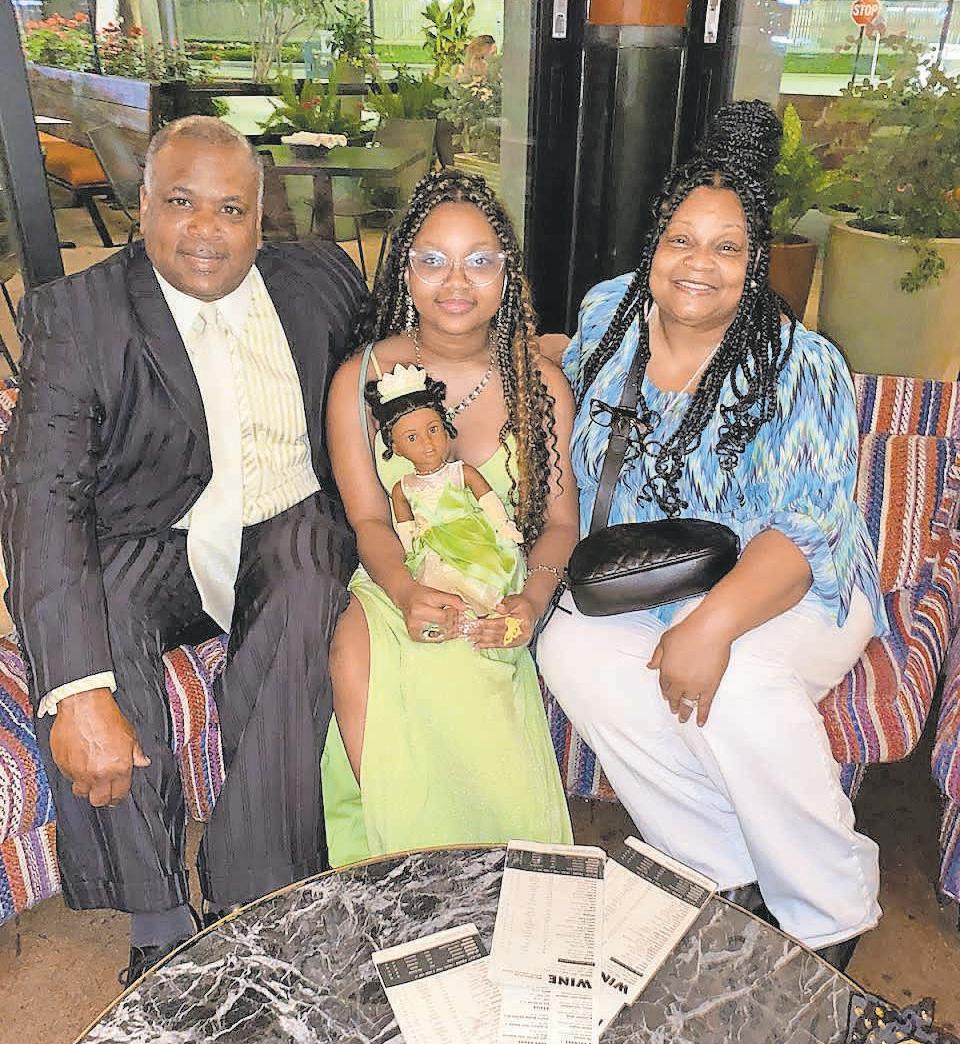




“I’m so fixated on getting the perfect score, and I do put pressure on myself to be the best I can be,” she said. “My friend Bella died of cancer when she was 15, and it ignited a flame in me to find the cure for childhood cancer. I want to see children live happy and healthy lives.”
With the support of her mother, Maxine Wiggins, they have a mother-daughter social media account for educational purposes.
“I use social media to help me find scholarship opportunities. I use it to grow and learn for educational purposes,” Hope said. “This generation puts more of their struggles out there. We aren’t afraid to share our insecurities, and people use social media as a resource to find ways to cope.”
subject is off the table when conversing with her daughter about life and how to respond to online bullies. Gen Z’s resourcefulness extends to their coping mechanisms. Following mental health influencers, engaging with positive content, and connecting with like-minded individuals can all contribute to a sense of well-being.
“As a parent, it’s important to equip your child with the facts as we know them and then let them make good decisions. On social media, we were bullied all the way down to death threats,” Maxine said. “We took a year and a half off to develop a family plan to support each other, so if we run into those situations again, we’re fully prepared to deal with them, and she won’t be alone when it does.”

Generation Z, which is defined as people born between 1997 and 2012, is growing up in a time when stress and anxiety are more common.
She enjoys playing with her American Girl Doll collection to help her relax and express herself. She also loves spending time with her parents.
Her parents are her biggest support systems and have helped her navigate the challenges that impact her mental health, from social media to academic pressures. No



While Gen Z is leading the charge in open communication about mental health, there’s still a long way to go. Increased access to affordable mental health care, improved mental health education in schools, and fostering supportive social environments are crucial steps.



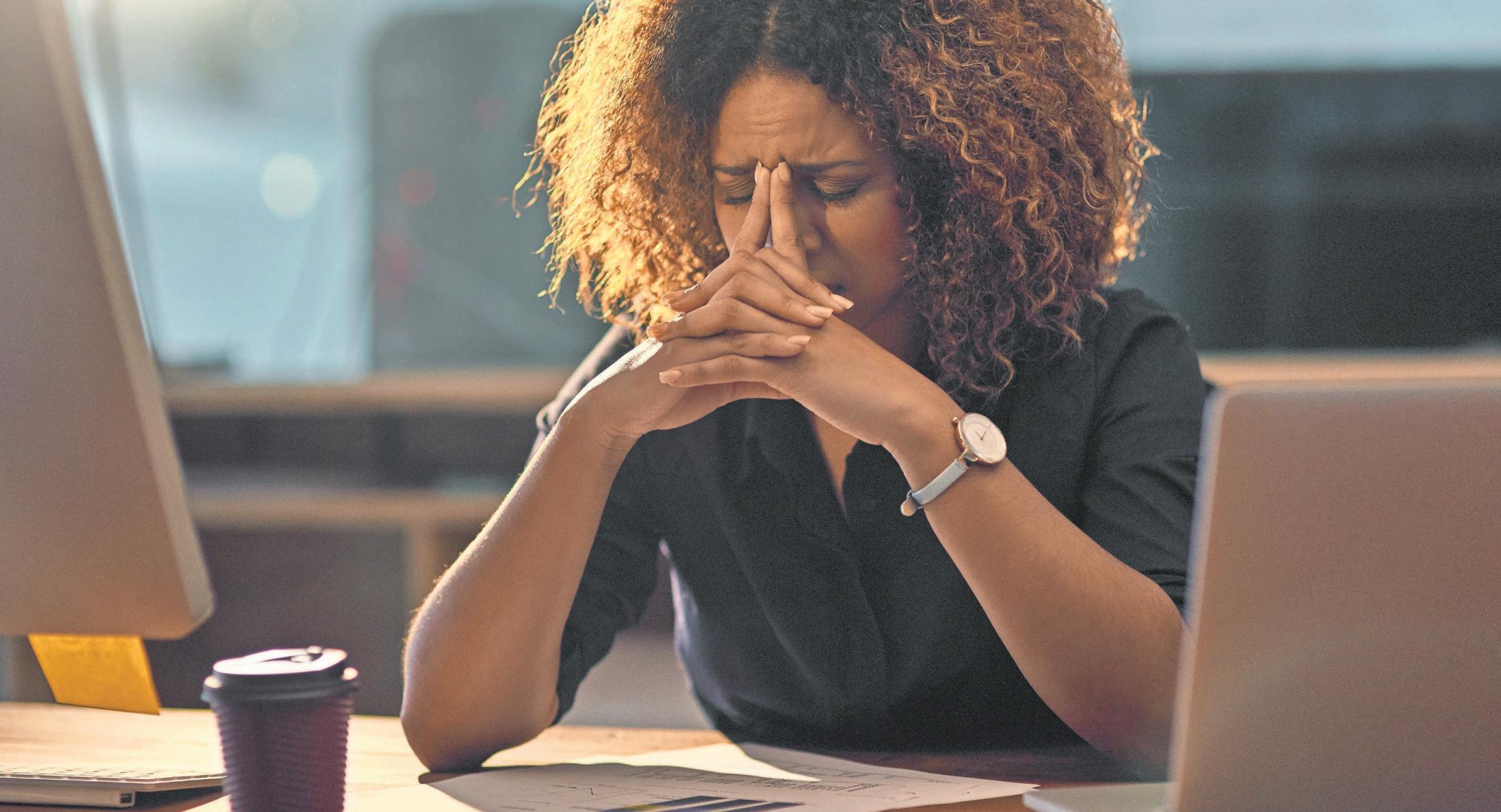
By Aswad Walker
The lingering trauma and ongoing health issues brought on by the COVID-19 pandemic; economic instability; ongoing justice system injustices; threats to Black voting rights and to democracy as a whole; the criminalization of Black books and Black thought; the end of DEI, affirmative action and women’s ability to make decisions about their own bodies have together heaped upon our shoulders stresses that weight us down.
Moreover, these are on top of the everyday life stresses of job issues, relationship ups and downs, worries about of children and health concerns.
Living in a society and culture that generally shuns seeking help, what are we to do when the stresses of life are impacting our physical and emotional well-being?
Dr. Deborah M. Wilson, a licensed therapist and Texas Southern University professor, suggests for those who are feeling “a certain kind of way” due to the weight of the world being pressed upon them, to understand exactly what stress is, and then take actions to protect your mental health.
Stress triggers chemical reactions in the brain and impacts how we feel and respond. Stress is a natural response to new, challenging or threatening situations.
“Experiencing stress is part of being alive, but it can become overwhelming, causing
daily dysfunction and serious health complications,” said Wilson. “Stress itself is not a problem, but it becomes a problem when it’s left unchecked and starts holding you back from working through challenges and/or experiencing your full potential.”
The stress that comes with landing a job interview, for example, can help motivate a person to prepare, show up on time and research the entity to put their best foot forward. However, if you don’t know how to handle, cope with or control stress, it can escalate into full-blown anxiety and limit your ability to communicate your knowledge and skills.
“If your stress response continues after the fact, and if you ignore it, it can become chronic (more severe) and potentially lead to mental and physical health issues, including anxiety, depression, heart disease and even death,” shared Wilson.
“Stress is known as a silent killer because while we might outwardly discount what is bothering us as problematic, our minds and bodies respond internally. So, if you are feeling a “certain kind of way” navigating life’s challenges (ex: relationship challenges, job loss, illness, etc.), here are a few things you can do.”
Recognize You’re Not Alone
Wilson recommends recognizing that
everybody is going through something, saying, “If you are human, and especially if you are Black, you are going through something.”
I can recount a few times when I dealt with an issue, only to talk to someone I trusted and discover what I was experiencing was quite “normal.” It could have been something as simple as an age-related change or as complex as a personal relationship issue resulting in feelings of shame or guilt.
The key is to talk about it. Try not to allow what you are feeling and experiencing to consume you. Again, talking about it with someone who you trust in a safe space can motivate you to “keep going no matter what.”
Seek out and/or become active with a group(s) within your community. Regardless of where you live, associating with a group that shares cultural values, traditions and beliefs can be a tremendous source of support.
If you are not comfortable disclosing what you are experiencing with friends or family, consider contacting a professional. A professional counselor or psychologist can assess
whether you are experiencing a “normal” life challenge or a mental health issue.
Life is a journey, and as we travel along this developmental journey, challenges become reference points we can reflect on as we continue our journey. If it is determined that, in fact, you are experiencing a mental health challenge, it is important to get on top of it before it becomes chronic.
• The Employee Assistance Program (EAP) provides free 3-6 confidential counseling sessions
• National Suicide Prevention Lifeline: 1-800273-TALK (8255) (English and Spanish)
• The Employee Assistance Program (EAP) provides free 3-6 confidential counseling sessions
• National Suicide Prevention Lifeline: 1-800273-TALK (8255) (English and Spanish)
• Harris Center for Mental Health Houston, TX (713) 970-7413
- Crisis Text Line: text HOME to 741741
- Crisis Intervention of Houston Hotline: 832-416-1177
• Houston Teen Crisis Intervention Hotline: 832-416-1199
- Houston Teen Crisis Intervention Text line: text 281-201-4430
• Center for Recovering Families at the Council Mental Health
303 Jackson Hill Street Houston, TX (713) 914-0556
By Jimmie Aggison
Youth sports are meant to be a source of joy, growth and physical activity for children. However, the pressures and demands of competitive environments can sometimes lead to burnout—a condition that afects their enjoyment and participation in sports. Understanding the signs of burnout and implementing preventive measures are crucial to ensuring that children continue to beneft from their sports experiences.
Loss of Interest: A noticeable decline in enthusiasm for once enjoyable sports activities can indicate burnout. Children may express disinterest in attending practices or games they previously looked forward to.
Physical Complaints: Falsifying injuries or frequent complaints of physical ailments, such as headaches or stomachaches, can be a sign of burnout before practice or games. Tese complaints may serve as a way for children to avoid activities they perceive as stressful or overwhelming.
Behavioral Changes: Children experiencing burnout may exhibit changes in behavior, such as increased irritability, mood swings, or withdrawal from teammates and coaches. Tey might also show resistance to participating in sports-related activities.
Natalia Jardim Moraes’s son, Luiz Byrum, was seven years old when he began to show signs of burnout during baseball.
“He would tell me that he didn’t want to go to practice or that he didn’t feel good,” said Moraes. “I had a conversation with him and he told me that he couldn’t handle the in-your-face coaching style at that time. Although he had a rough time expressing himself, as a parent, I listened to him and talked to his coach.”
Recognizing when your athlete is going through changes and speaking for and with them is key to early detection. Moraes spoke with the coach and both agreed her son was not ready for that particular coaching style at that age. Te coach understood and now at nine years old and on another team, Byrum is doing great.
“I build him up little by little and he is pretty tough now,” said Moraes.
Moses Ford’s son Isiah Ford, began to lose interest in putting in extra work and training when he was in the sixth grade.
“My son Isiah played football, ran track and played basketball, so he was considered

a year-round athlete as he played and trained between seasons. He spent at least an hour a day, 4 -5 days a week working out to keep his weight down to play a skilled position. He played running back and linebacker, but afer getting tired of the training taking up much of his time he switched to the defensive line, where he didn’t have to train, just show up to practice,” said Ford.
Ford suggests finding a balance and focusing on the lessons taught as they
navigate their sports journey.
“We are the parents and we can’t allow our kids to not be safe, both physically and mentally. Make sure they are dedicated to something benefcial/productive and teach them to understand why, that is ultimately more important than any particular craf. Let them fnd their way and support but don’t sacrifce the lessons or meanings. Success in any feld requires discipline, dedication and consistency. Teach the traits and
develop the child; if you can do that, they’ll win regardless,” said Ford.
When looking for ways to prevent burnout, parents should consider the following:
Diversify Sports Participation:
Encourage children to explore and participate in diferent sports throughout the year. Tis diversifcation helps prevent burnout by keeping activities fresh and allowing children to develop a broader range of physical skills and interests.
Avoid Overtraining: Be mindful of the intensity and frequency of training sessions. Overtraining can lead to physical and mental exhaustion in children. Coaches and parents should collaborate to ensure that training schedules are age-appropriate, allowing adequate time for rest and recovery. Promote a Positive Environment: Create a supportive and positive atmosphere within the sports team or club. Encourage open communication between children, coaches, and parents. Emphasize sportsmanship, teamwork, and enjoyment rather than solely focusing on winning or performance outcomes.
SEE MORE SPORTS STORIES ON MENTAL HEALTH
-VERNON MAXWELL TALKS MENTAL HEALTH
CHALLENGES
-ATHLETES WHO HAVE TAKEN A STAND ON MENTAL HEALTH
“Diversifying sports can allow your child to take a break and breathe from a sport he may be losing interest in without giving the sport up altogether. When my son began to lose interest in football, we switched over to basketball during basketball season,” said Alyndria Johnson.
Johnson’s son, Kenneth Trahan, began playing football at four years old. When he began to show signs of burnout, his family switched him to basketball. Although he wasn’t the best at hoops, the transition allowed him to relax and refocus. He rejoined his seventh grade football team and the love for the sport came back his freshman year while at Westbury High School.
Why taking care of you should be a priority.
By ReShonda Tate
Mental health is a critical aspect of overall well-being, yet it often goes unaddressed within the Black community. Understanding the unique mental health challenges faced by Black women, Black men, and Black youth is essential for fostering a supportive environment that promotes mental wellness.
Black women frequently encounter the “superwoman schema,” a societal expectation to remain resilient and strong despite significant stressors. This pressure can lead to severe mental health issues.
By the numbers:
• According to the National Institute of Mental Health (NIMH), Black women are more likely to experience depression than their white counterparts but are less likely to seek treatment.
• The Anxiety and Depression Association of America (ADAA) reports that only 7.6% of Black women with mental health conditions receive adequate care, compared to 20.6% of white women.
Why it matters: Addressing mental health in Black women is crucial to combating chronic stress, depression, and anxiety. Encouraging selfcare, seeking therapy, and dismantling the superwoman stereotype can lead to improved mental health outcomes.
Black men face significant stigma regarding mental health, often exacerbated by cultural norms that equate masculinity with stoicism and emotional suppression. This stigma contributes to lower rates of mental health treatment and higher rates of untreated mental health conditions.
By the numbers:
• The American Psychological Association



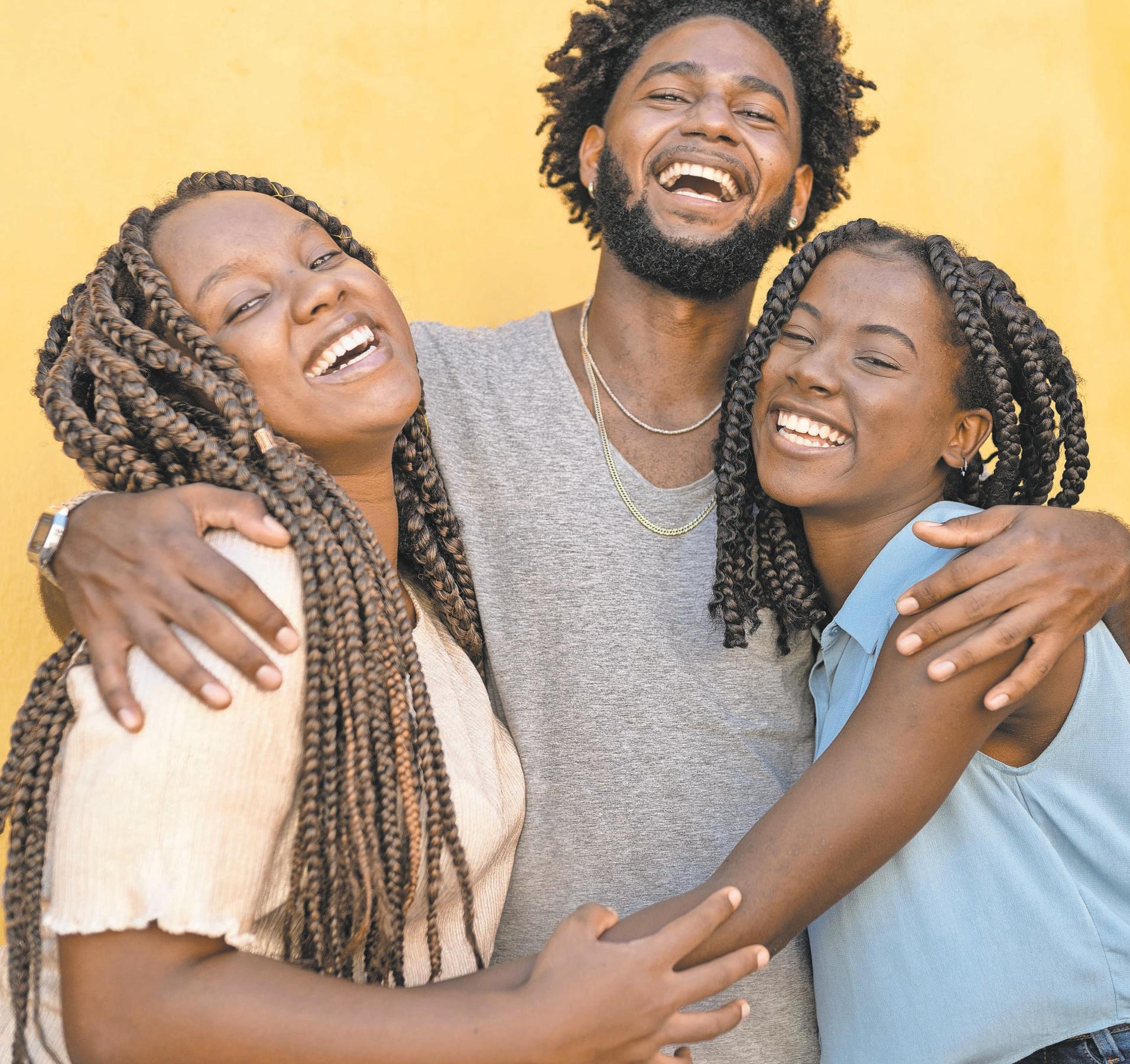
(APA) highlights that Black men are less likely than any other group to seek mental health treatment.
Historical,
• The Substance Abuse and Mental Health Services Administration (SAMHSA) found that in 2022, only 26.4% of Black men with mental health issues received treatment, compared to 45.4% of white men.
Why it matters: Focusing on mental health for Black men involves creating safe spaces for expressing vulnerability and promoting therapy as a tool for strength, not weakness. Addressing these issues can reduce rates of untreated mental illnesses and improve overall quality of life.
Black youth face unique challenges, including higher exposure to community violence, systemic racism, and socio-economic disparities. These factors can lead to significant mental health issues if not addressed early.
By the numbers:
• The Centers for Disease Control and Prevention (CDC) report that Black youth are more likely to attempt suicide than their white peers.
• According to the National Alliance on Mental Illness (NAMI), nearly 50% of Black teenagers with
mental health conditions do not receive treatment.
Why it matters: Early intervention is key to mitigating long-term mental health issues in Black youth. Schools, community programs, and families must prioritize mental health education and resources to support young people. Creating environments where Black youth can openly discuss their mental health can foster resilience and healthy coping mechanisms.
Systematic barriers significantly impact mental health in the Black community. Despite making up approximately 12% of the U.S. population, Blacks are disproportionately represented in high-risk groups. For instance, they constitute roughly 40% of the homeless population, 50% of the prison population, and 45% of children in the foster care system. Exposure to violence, incarceration, and involvement in the foster care system increases the likelihood of developing mental health issues.
“Historical, economic, social, and political factors have systemically exposed the Black community to conditions detrimental to psychological and physical health,” said Houston therapist Nettie Jones.
Despite recent progress, significant stigma remains associated with mental health concerns in the Black community. There is often reluctance to acknowledge psychological difficulties, with many preferring coping strategies such as religious practices, pastoral guidance, and prayer. Destigmatizing mental health involves helping people understand that mental health is as crucial as physical health. Negative stereotypes and attitudes of rejection contribute to the belief that mental health issues are personal weaknesses. This lack of information leads to confusion about when to seek help and where to find it. Improv ing cultural awareness and responsiveness within the mental health workforce is crucial. Research has shown that a lack of cultural responsiveness, cultural mistrust, and potential negative views from therapists can hinder the provision of mental health services to the Black community. However, increased awareness and funding for culturally responsive mental health treatment are promising developments.
Research from the Columbia University Department of Psychiatry reveals that the adult Black community is 20% more likely to experience serious mental health issues. However, only one in three African Americans who need help actually receive it. For comparison, about 25% of Black people seek mental health care, compared to 40% of white individuals. Several barriers contribute to this disparity, making it harder for Blacks to access professional mental health care. These include a lack of Black therapists, cultural stigma within the community, and high costs.
Despite the Affordable Care Act, around 12% of African Americans are uninsured. Dr. Nettie Jones says that even those with insurance often face high co-pays or deductibles for mental health services.
“Deductibles can somewhat be high. Some people don’t have insurance and a lot of the providers are now getting off of these insurance panels, so people are finding themselves unable to afford care,” Jones said.
Even those with insurance can find their search for care stymied by the inability to locate a provider.
“Not only do you have to find a provider who is accepting new patients, but you also have to find one that will accept your insurance,” Jones said. “Or you may have a clinic that does sliding scales, but you can’t get in for several weeks. Or if you can get in, then it’s very limited on the services that you receive. Getting an appointment for a psychiatrist for a new patient may be anywhere from two to three weeks to a month. If there are no resources available, what ends up happening is people kind of give up.”


When 23-year-old Kristian Smith first started therapy ten years ago, she faced her family’s dismissiveness of mental health.
“When told my mother needed to see a therapist, you would’ve thought I told her I was going to be a prostitute. She had a fit about me spilling ‘family business.’ And that’s the way it’s always been in my family,” Smith said.
For many in the Black community, it’s still taboo to admit suffering from depression, anxiety, and other mental illnesses.
“Many of us have grown up with ‘what goes on in our house stays in our house’. And I’m sure many of us have a story about an uncle or an aunt who just wasn’t quite like everybody else.”
CULTURAL STIGMA
Familial shame often stems from a broader cultural stigma within the Black community. Therapy is viewed as a sign of weakness and something to be ashamed of.
“A lot of Black people don’t think of therapy as a realistic option,” says Jones, adding that they often turn to “safer” avenues like church, friends, and healing circles.
LACK OF DIVERSE PROFESSIONALS
Blacks often prefer therapists who share their racial background for better understanding. However, in 2023, only about 2% of American Psychological Association members identified as Black. This lack of representation makes it challenging to find appropriate therapists.
WHITENESS AS A FOUNDATION
Most psychological training is based on white norms, values, and beliefs, which can affect the competency of non-Black therapists.
DISTRUST OF THE MEDICAL INDUSTRY
Historical mistreatment and misdiagnosis have fostered a deep mistrust of the medical system among Black people.
WORDING CHOICE
Black folks hate to be labeled “crazy,” which some mental illnesses are often unjustly labeled. Jones suggests using words like “Emotional wellness” instead of “Mental health.”
“When you use the word emotional wellness, people are a little bit more accepting,” she said. “When you say words like mental and psychological, it kind of shuts people down because they immediately think of the C word.”
EMOTIONAL HESITATION
Blacks are often taught to keep their feelings to themselves. Even after finding a therapist, opening up can be challenging.
“Talking about emotions is something many of us are not directly taught,” says Smith. “Sharing that process with a stranger can be daunting.”
NEGATIVE PAST EXPERIENCES
Many Blacks have had negative experiences with counselors, often due to a lack of cultural awareness and competence. These experiences can discourage them from seeking further help.
By Laura Onyeneho
LaKisha
Mosley,
a Houston-based mental health infuencer, knows the depths of despair all too well. A few years ago, a life-shattering divorce lef her homeless, battling depression, and contemplating suicide. Feeling utterly lost, LaKisha clung to a single lifeline – a book gifed by her pastor. Te words within its pages ofered a glimmer of hope, a spark that ignited her will to fght for herself.
Tis experience became the catalyst for LaKisha’s transformation. She began pouring her experiences onto the page, journaling her journey towards self-love and healing. In 2018, what began as a personal outlet became a platform dedicated to empowering others struggling with similar challenges. LaKisha’s blog doesn’t shy away from the raw realities of mental health. She openly shares her story alongside interviews with experts and everyday people facing their battles.
LaKisha’s infuence extends far beyond her blog. In 2020, she took a leap of faith, leaving her career in grocery retail management to become a full-time entrepreneur. Now, LaKisha is helping countless individuals navigate the complexities of mental health, and she is letting the Defender in on her journey.
DEFENDER: Can you share your personal journeywith mental health and whatinspiredyoutobecomeanadvocate in this feld?
LaKisha Mosley: Back in 2022, I sufered from a mental breakdown. I didn’t know what it was, to be honest with you. I thought it was coming up to my 46th birthday. I’m probably just feeling this midlife thing that’s going on. I was very fatigued. But I started to question my existence, my purpose. Why was I here? I went to get a well-woman exam, and I just went through the motions of whatever she was asking. And I think that’s when the mask fell off. And I guess based on the way I was answering some of the mental health questions, she looked at me and said, ‘You are severely depressed, and I need you to see a therapist today.’ My life changed going forward. As a businesswoman, there were no safe spaces for us to talk about mental health issues. Tere was shame and stigma. Tat’s how my journey started.
DEFENDER: What specifc challenges have you faced in your mentalhealthjourney,andhowhave youovercomethem?
Mosley: I had to adjust to this reality of having to live with a mental illness. I was
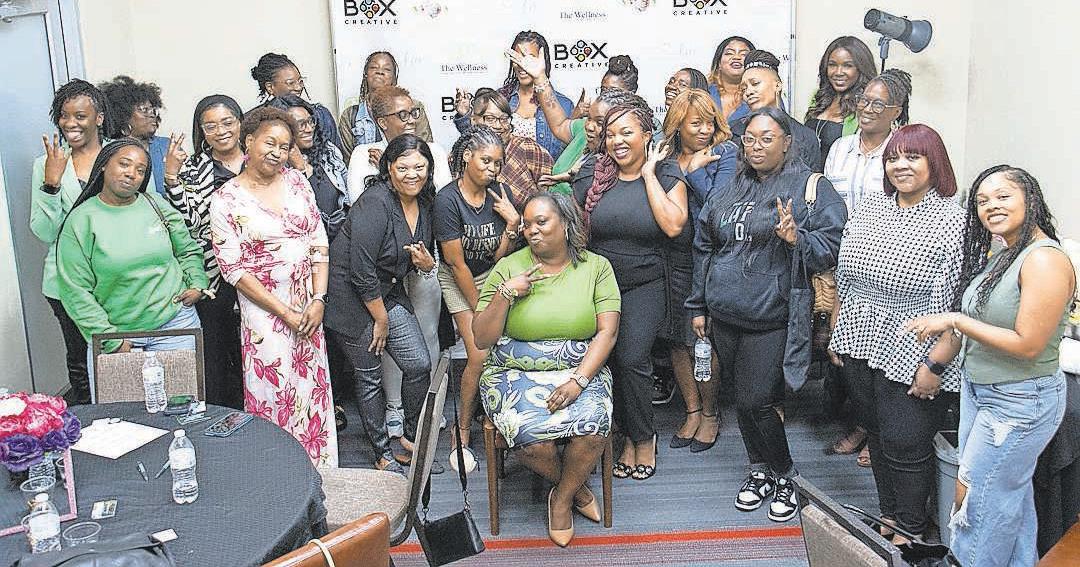
diagnosed with high-functioning depression, and for me, it’s one of the worst things but can also be one of the best things. For us, as high-functioning people, work is what fuels our self-worth. You rarely take time of. And a lot of times, you’re in a depressive mode. You don’t know it; you constantly wear a mask where work just makes you feel good until you crash or go into a burnout state.
Te challenge has been navigating that as an entrepreneur, trying to fnd that circle of trusted friends and colleagues with whom I can share what a crisis looks like. I think getting people to be aware and to be more thoughtful to those of us who live with a mental illness has been one of the greatest challenges. I think it’s just the awareness of the journey, the mental health journey that a lot of us deal with, the awareness that we may not look like how we truly feel on the inside.
DEFENDER: How do you use your platform to raise awareness about mental health issues, and what kind of impact have you seenfromyoureforts?
Mosley: I think I got serious afer I was diagnosed. So before my diagnosis in 2020, I started my annual conference called “My Mind Is My Business” because it’s specifcally for entrepreneurs and business leaders, specifcally women.
I’ll say that seems to be my kind of target or niche market. So in June 2020, when we were all at home, I decided to start this series afer George Floyd was murdered. And it was called “Racism in Black America.” I just had a series of diferent industries on, and the last industry was mental health, clinicians, therapists, and all, you know, people like that. It was the most viewed podcast. And the outreach was amazing. People felt the conversation wasn’t long enough. We went for about two hours, but it wasn’t long enough. People had questions, and people began to resonate with that.It wasn’t until 2022 that I decided to use my platform or my voice,
using my event as this outreach platform for other entrepreneurs to feel safe. Tey were coming to the conference and getting the resources and the information, but then I would leave them hanging until the next year. And I just decided I didn’t want to do that anymore. I wanted to create this safe, communicative space for people to come and talk about what it is they’re feeling to tap into resources and clinicians and therapists that could help them that knew what they were probably dealing with, could find ways to help them out, be it they fnd a therapist in their area, or they fnd resources such as 9 8 8 or NAMI or the Mental Health Institution.
By Aswad Walker
Dr. Deborah Wilson is busy on multiple fronts. An assistant professor in Clinical Mental Health Counseling at Texas Southern University and licensed professional counselor (LPC), Wilson’s also a licensed chemical dependency counselor (LCDC) and maintains a limited private practice while serving as a crisis intervention consultant for a nationwide crisis intervention network. But wherever she is, a call for community and mental wellness is front and center.
The Defender recently spoke to this wellness warrior about her multiple roles and the drive behind them.
DEFENDER: Whatexperiencesledyou to counseling?
Wilson: I grew up in an environment and time in history where “I’m Black and I’m
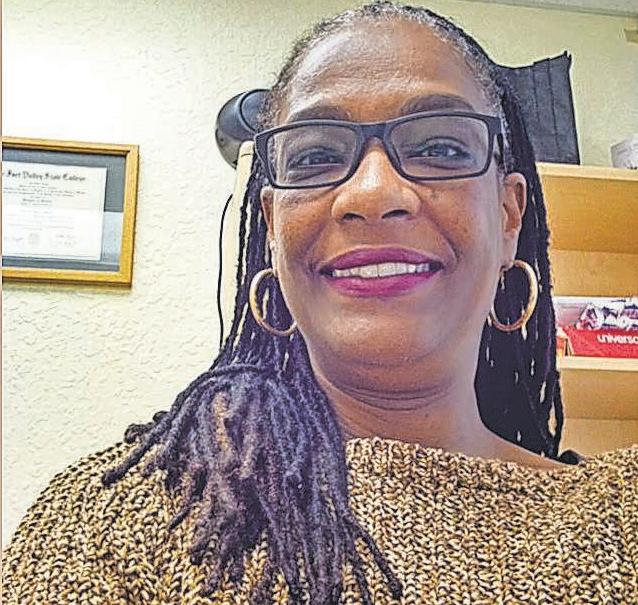
Understanding who you are and affiliation with a strong group can provide the psychological fortitude to deal with life’s challenges.”
DR. DEBORAH WILSON
Proud” was the resounding message for Black folks. Still, I was dealing with personal childhood challenges that piqued my curiosity from a young age in terms of interacting with family and the community. I took my first class in psychology at Wayne County Community College and got hooked. As I journeyed into the profession, I was fortunate to become involved with a group that further assisted me in understanding the world in which we all co-exist. This relationship provided me with a unique perspective in working through life’s challenges and putting into perspective understanding the importance of intellectual stimulation, culturally relevant interaction and spiritual matters. I practice these teachings at all levels as I interact in the world, including academia and in private practice. Bottom line: Understanding who you are and affiliation with a strong group, can provide the psychological fortitude to deal with life’s challenges.
DEFENDER: What’s most rewarding aboutyourjob?
Wilson: The most rewarding aspect of what I do is preparing students as they journey into the field of counseling. Primarily, I assist them in gaining the knowledge, skills and dispositions necessary to become effective helping professionals.
DEFENDER: What’s the most challenging part ofyourwork?
Wilson: In a world of constantly evolving technology, social media and virtual reality, I have to maintain a conscious awareness of the impact it has on students in the classroom (from a teaching and learning perspective), and in how I interact with clients in the therapeutic setting. A case in point is recent DEI debates and legislation. Most legislation is based on politically motivated, emotionally fueled rhetoric vs. empirical research. The principles upon which the helping professions are built in terms of ethics, morals, and values are directly connected to the Constitution. Given that states control academic programming and professional licensure, they can impact how I interact as an academic with students and as a professional working with clients.
DEFENDER: What challenges have you faced professionally as a Black woman?
Wilson: Microaggressions, stereotyping, having to cringe and hold back as disparaging remarks are made about others and our students at PWI’s, and dealing with misdirected competition from Black professionals who sometimes lack a level of awareness
that we are one, and we need each other. In some cases we Black women cannot catch a break. Overall, I cannot imagine working anywhere else. Academia gives me a unique opportunity to prepare the next generation of helping professions. Understanding who I am provides me with the psychological fortitude to deal with it.
DEFENDER: Is your field something more Blacks should pursue?
Wilson: Absolutely! Especially Black males. I’ve taught in graduate counseling programs for over 20 years at PWIs and HBCUs. Ninety-eight percent of graduates journeying into the field over the course of my tenure are Black and white women. A growing percentage of clients (individuals, couples, and families) are Black and people of color. Many clients of color express a preference for someone who looks like and can relate to them. Empirical research confirms the need. The impact that Black males have in communities of color cannot be underestimated. Their presence is much needed and appreciated. The bottom line is that Black helping professionals are effective in understanding the Black experience. However, it is critically important that the person understands who they are to be effective. I cannot stress this enough.
By Tannistha Sinha
Wale Okerayi’s approach to therapy is unique — using books to heal. As a therapist who has been an avid reader since her childhood, bibliotherapy stood out to her, a form of therapy that uses literature to provide resources to help people make sense of their surroundings. Her multicultural approach toward therapy addresses the intersectionality of race, marginalization, capitalism and oppression.
A first generation Nigerian American licensed mental health professional and counselor from Houston, Okerayi practices in New York and Texas. Her sessions focus on counseling couples, authors and writers.
Upon completing her bachelor’s, she met with other psychotherapists through a babysitting job who ignited her interest in the field. At the time, there were not too many therapists who looked like her. “That’s not the case any more now,” she said.
It has been seven years since she began her practice. She has a double master’s in psychological counseling and ED.M in mental health counseling from Teachers College, Columbia University, and holds a bachelor’s degree in psychology and criminal justice from Texas State University.
Okerayi uses bibliotherapy as an individual service alongside other practices. She believes books have the power to resonate with people’s experiences, and describe them when those in therapy do not have the words.
Based on what her clients are experiencing at a particular moment, she recommends certain books that validate their experience, while creating a safe space for them. By reading the characters’ stories and the ways in which they navigate through their difficulties, people find relief.
These books cover topics that include parental relationships, dating and marriage, gender and identity, sexuality, grief, trauma and abuse.
“I found that it helps clients to feel not so alone in their experiences or the things that they’re struggling with. It gives them the language to describe it, but also the validation to know that it’ll be okay at some point,” she said. “Or that they can seek help or approach a situation from this perspective as well.”
If one feels connected to a character, she suggests asking what about the experience makes
them feel this way, what they relate to or even hate about a character.
“There’s a lot of information that you can learn about yourself based on reading these characters’ lived experiences. Reading can also be healing because it gives language to a situation that you didn’t know how to describe,” Okerayi said. “Maybe it was something dramatic or sad, it can give language to that experience so that you can do the work to also give language for yourself to something that you’ve experienced too.”
She also encourages her clients to use their imagination and be hopeful in a world that does not share these values, as modern day work life is accompanied by stress and burnout. Books, on the other hand, let us live in someone else’s world for a while and imagine what life would look like had we taken a different path.
Her work with authors, albeit new, explores how they put parts of themselves into their works and the toll it takes on their mental health. Okerayi also works with them through the creative process of their writing as well, the memories they have stored away that resurface while they write.
She is constantly reading, she says, and creating lists categorized into themes. She sets reading goals.
“I have a client that is navigating through a domestic violence situation. I have books to recommend to them,” she said. “Maybe clients that are going through a coming of age or a big life transition, I have lots of books for that too. That includes mostly fiction, but also nonfiction.I’m interested in it so it doesn’t feel too much.”
Okerayi believes there is not.
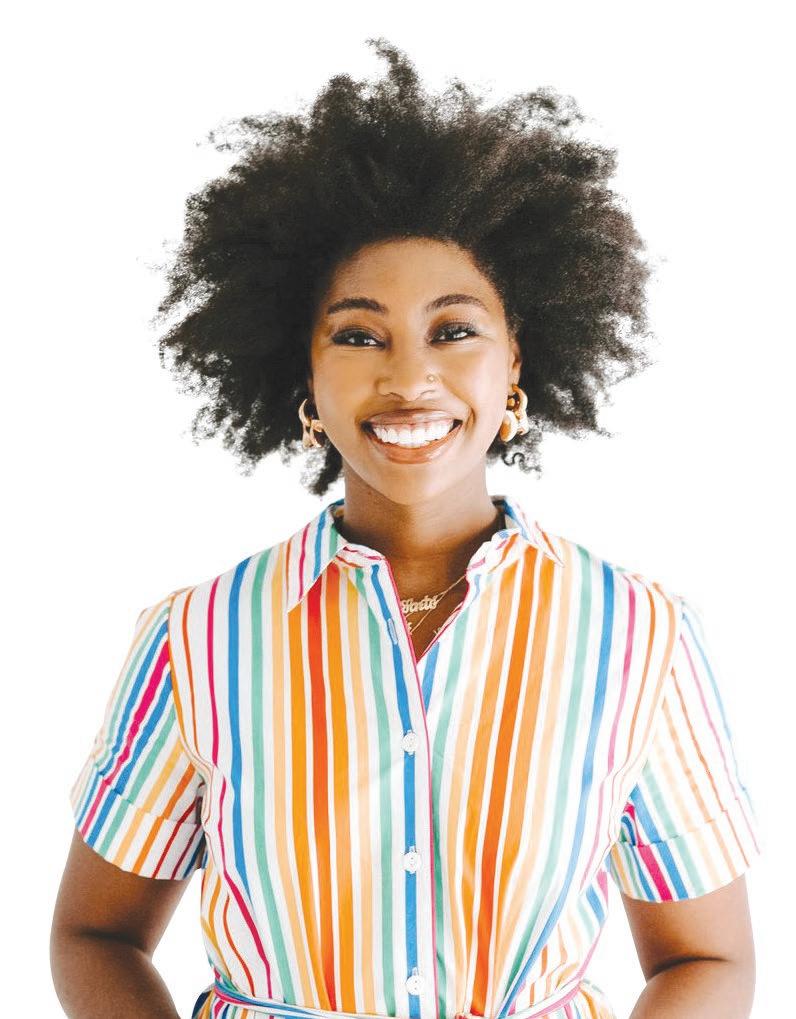
“There’s a lot of reasons for it. There’s a lot of different steps that one has to take in order to become a therapist that make it inaccessible for many people,” she said. “That ends up deterring a lot of Black people from pursuing their career as well. Going to grad school is not cheap, and then after grad school, you have to get 3,000 hours in order to be licensed, and then in working that way, you get paid significantly less because you have to supplement your pay for the supervision that you’re receiving.”






When Black media was founded in 1827, its mission stated clearly: “Too long have others spoken for us… We wish to plead our own cause.”
By Aswad Walker
The problem in 2024, according to a national survey, is that only one in three Blacks get their news from Black media, and less than a quarter of Blacks do so regularly. That means between 66% and 76% of Blacks rely almost exclusively on news sources they say paint Blacks in a negative light and fail to share stories about Blacks with the full and nuanced treatment Black stories, Black people and Black communities deserve.
According to Black people’s own testimonies and a 2024 Pew Research study, the Black press is needed now more than ever, if for no other reason than the negative impact being belittled or ignored has on the collective and individual Black psyche.
Research has shown Black children ingest, on average, 200 negative messages a day, many of those from media. The numbers for Black adults are not much different. And because scientists say human beings must receive five positive messages for every negative one, news media anti-Blackness is doing us serious harm.
That study revealed what has been no secret in Black circles. Go to any Black barbershop, family reunion or church picnic, and “where two or more of us are gathered,” there too will be the opinion that
mainstream (white) media is soaked in anti-Blackness.
In 1967, the Kerner Commission – a panel established by President Lyndon Johnson to investigate the causes of the nation’s 150-plus “urban riots” – called out this media bias. But that anti-Blackness existed long before Kerner and persists today. Just a cursory reading of the way historical and current white domestic terrorist events are reported reveals a consistent blaming of the victims for the violence and/or media justification for the violent actions of individuals, lynch mobs and governmental agencies against Blacks.
The Pew Research Center 2023 survey reported:
63%
News about Blacks more negative than news about other races.
80%
Exposed to anti-Black news.
40%
See demeaning coverage of Blacks fairly to extremely often.
86%
Believe mainstream media’s negative Black coverage won’t change in their lifetime.
Band-aid ‘solutions’
Blacks have no shortage of suggestions for improving the way mainstream media covers the Black community. These include imploring journalists in predominantly white mainstream media spaces to:
Cover all sides of the issues
Understand the issues’ histories
Personally engage with the people they cover Advocate for Black people
Hire more Black reporters and decision-makers (news directors)
community. The real existence of Black people is not captured by general media. Its true reflection is captured in Black Media.”
Why we need the Black Press
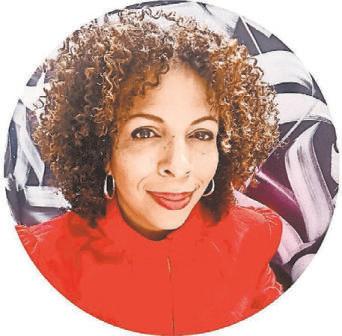
Beyond appealing to white media for salvation, it appears the only route Blacks can take to receive humane treatment from the media is the Black press. The same Black press few currently utilize.
So, what do Black media members say about this issue?
Why aren’t more Blacks utilizing Black media?
Liz Courquet-Lesaulnier, managing editor of Word In Black, a firstof-its-kind national newsroom powered by a collaboration of 10 of the nation’s leading Black publishers, is an ardent advocate of Black media.
Courquet-Lesaulnier, has seen first-hand the power of the Black press, having written about racial justice, gender equality, education, health, and culture for several national websites and print publications, including Ebony, BuzzFeed, The Huffington Post and Good Housekeeping.

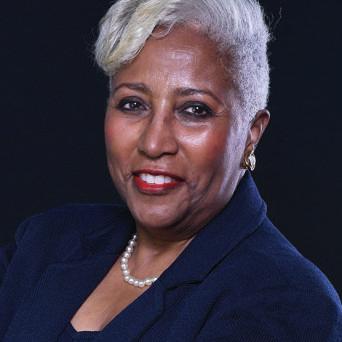
“I think many Blacks are unaware of Black media, while some lump all Black media as the same (we are not all the same), and others don’t seek us out,” said local media legend, Sonceria Messiah Jiles, publisher/ owner of the Defender Network. “But we as Black media need to promote ourselves and use other media to expand awareness to show the value we bring and add to our
“Black media is critical to our well-being because we need news that is produced without centering – or having to answer to – the white gaze,” said Courquet-Lesaulnier, who also held the position of communications director at 826 National and served as the founding managing editor of Shondaland. com, a platform dedicated to women’s empowerment and lifestyle, spearheaded by television icon Shonda Rhimes.
“We need to see Black America framed through an asset lens and reported on in a way that reminds us that our existence and experience is not the problem, and in fact, we are most often found creating solutions for our community – and the nation as a whole.”

By Laura Onyeneho
Dementia has been a part of Reverend Linda Davis’ family for a long time. Both her late mother and sister sufered from it. She began to notice how ofen they both forgot about basic things. Her sister is a very strong and independent woman and business owner, but she slowly changed her behavior over a year afer her diagnosis.
“It’s hard. You don’t know what you’ll get from day to day. It’s very emotional to see your loved ones sufer like that,” Davis said. “You have to learn diferent strategies to take care of them.”
For Black families facing dementia, the challenges extend far beyond managing the disease itself. Te emotional toll on caregivers, particularly Black women who ofen take on the brunt of caregiving duties, can be immense. Experts warn that the mental health of these caregivers is ofen overlooked, creating a ripple efect of stress and strain within the family unit.
According to the Alzheimer’s Association, dementia is a general term for loss of memory, language, problem-solving, and other thinking abilities that are severe enough to interfere with daily life. Te cognitive capacities, or thinking skills, begin to deteriorate with dementia symptoms to the point where daily functioning and independent living are afected. Tey have an impact on relationships, conduct, and emotions as well. Te symptoms of dementia are progressive, meaning that they begin slowly and progressively worsen with time.
Te Centers for Disease Control (CDC) states that roughly one in fve Americans provide care for older adults or individuals with disabilities, and over half of these caregivers are women. However, the burden falls disproportionately on Black families. African Americans are twice as likely to be diagnosed with Alzheimer’s disease and related dementias compared to the national average. Tis means not only are Black families more likely to have a loved one battling dementia, but they are also more likely to be the primary caregivers, shouldering the emotional and practical weight of that responsibility.
Davis pastors Boynton Chapel Methodist Church where the average person is about 65 years old. Several church members struggle with stories similar to hers. Her mission has been to create a support group to help those families.
“We’ve been trying to partner with the University of Houston to offer resources and support for people in the
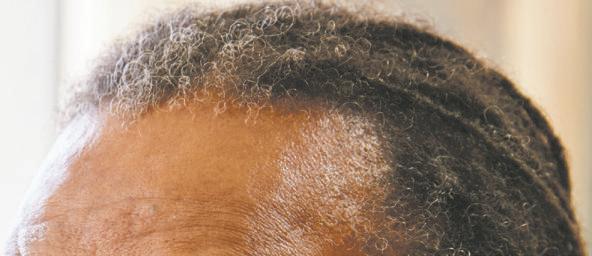
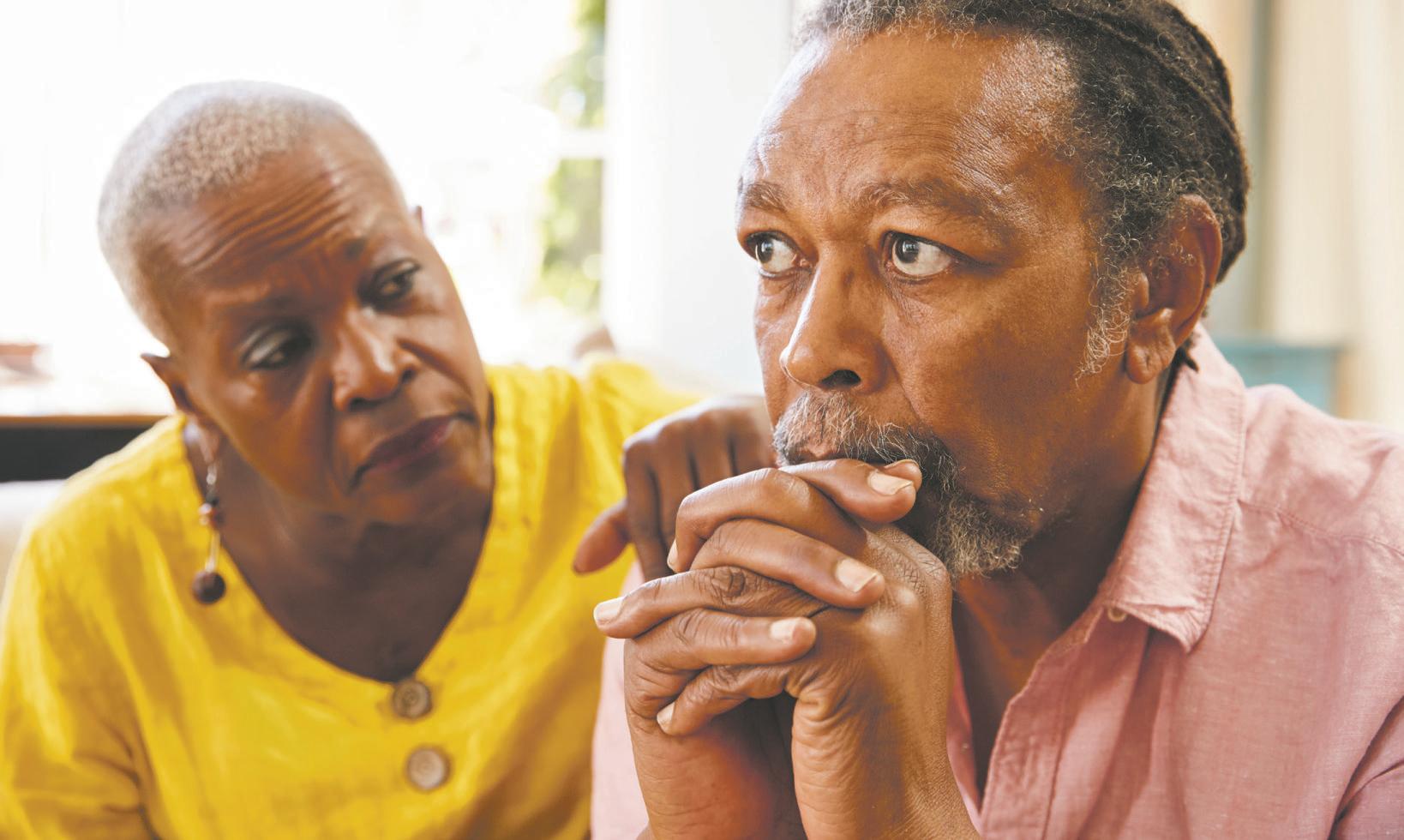
Tird Ward and other underserving communities,” she said. “When my sister was diagnosed with dementia and Alzheimer’s, we had no clue about who to talk to. Our family nurses helped us navigate healthcare providers, but not everyone has that assistance.”
Te challenges faced by Black families go beyond simple numbers. For families where caregivers and dementia patients live under the same roof, generational diferences can further complicate the situation. Members of younger generations, like Millennials, are more likely to have access to resources and open conversations about mental health.
However, older generation members may hold onto the belief of keeping family issues private, creating a wall of silence that prevents them from seeking help. Tis stigma surrounding mental health can be particularly detrimental for Black seniors, who might be reluctant to seek support or even acknowledge the emotional toll of caregiving, leading to a decline in well-being for the entire family.
Te fnancial strain of caregiving adds another layer of stress for Black families. AARP research indicates that most African American caregivers are employed while caring for a loved one. Tis ofen translates to juggling work schedules, taking leave of absence, or arriving late/leaving early to accommodate caregiving
needs. Tis constant state of imbalance can lead to burnout, fnancial hardship, and a decline in overall well-being for both the caregiver and the dementia patient.
Neuropsychologist Luis D. Medina,
Ph.D., at the University of Houston, shares experiences similar to those of Davis. His maternal grandmother’s sister died of Alzheimer’s disease, and her daughter died of vascular dementia.
NOTICE TO BIDDERS
The Metropolitan Transit Authority of Harris County, Texas (METRO) is planning to issue the procurement documents listed in this advertisement.
IFB No. 4024000168: 54 Scott Operator Restroom. Solicitation will be available on or about 06/25/2024. Prospective bidders/proposers can view and download these solicitations by visiting METRO's website at ridemetro.org/Open Procurements. If you are unable to download the documents or are having difculty, please contact 713-615-6125 or email Contracts/Property Services at propertyservices@ridemetro.org
NOTICE OF SALE OF ABANDONED PERSONAL PROPERTY
Pursuant to Chapter 59 Texas property Code, Neighbor Storage will hold a Public Sale of Property to satisfy Landlord's lien on July 17, 2024 online through Storagetreasures.com. Tenant is John Stieber and the storage space is located at 4828 Baton Rouge Street Houston, Texas, 77028
By ReShonda Tate
In the demanding environment of modern workplaces, safeguarding your mental health is crucial. Here are some practical strategies from local therapists to help you maintain your well-being while navigating your professional responsibilities:
Establish clear boundaries between work and personal life. Decide on specifc work hours and stick to them. Avoid checking work emails or taking work-related calls outside of these hours to ensure you have time to recharge.
Use task management techniques like the Eisenhower Matrix to prioritize tasks based on their urgency and importance. Focus on completing high-priority tasks frst, and don’t hesitate to delegate or defer less critical ones. Write down these tasks so you can measure your accomplishments.
Regular breaks throughout the day are essential for maintaining mental clarity and reducing stress. Follow the Pomodoro Technique, which involves working for 25 minutes and then taking a 5-minute break,
to keep your mind fresh and focused.
Design a workspace that promotes well-being. Ensure proper lighting, maintain good posture with ergonomic furniture, and personalize your area with items that bring you joy, such as plants or photos.
Incorporate mindfulness practices into your daily routine. Techniques such as deep breathing, meditation, or even short walks can help reduce stress and improve focus.
If you’re feeling overwhelmed, consider seeking professional support. Many organizations ofer Employee Assistance Programs (EAPs) that provide access to counseling services. Therapy can offer strategies to manage stress and develop healthier coping mechanisms.
Physical health and mental health are closely linked. Regular exercise, a balanced diet, and adequate sleep are fundamental to maintaining your mental well-being. Even small adjustments, like
taking the stairs or having a healthy snack, can make a diference.
Communicate with your manager if your workload becomes unmanageable. Discussing your capacity and setting realistic expectations can help prevent burnout. Don’t be afraid to ask for help or delegate tasks when necessary.
Whenever possible, take advantage of fexible work options. Whether it’s adjusting your hours, working remotely, or adopting a hybrid schedule, fexibility can reduce stress and improve work-life balance.
Mental health challenges afect all generations and genders, but the stigma can vary. Younger employees might be more open about their struggles, while men may face greater stigma in sharing their emotions. Increasing mental health literacy across the organization is crucial. Creating spaces where diferent groups can share their experiences helps normalize the conversation and reduce stigma.
